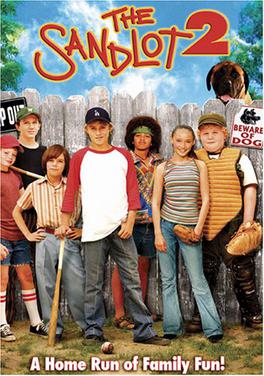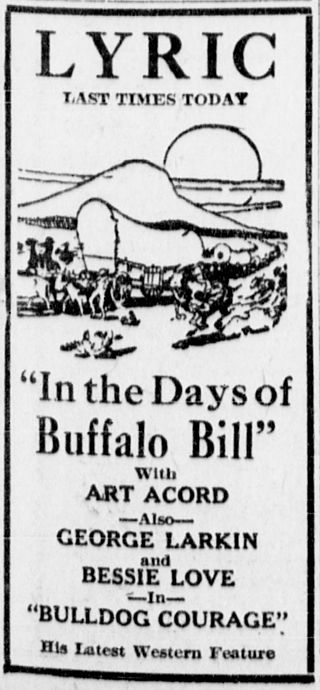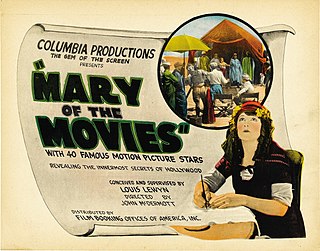
The Great Rock 'n' Roll Swindle is a 1980 British mockumentary film directed by Julien Temple and produced by Don Boyd and Jeremy Thomas. It centres on the British punk rock band Sex Pistols and, most prominently, their manager Malcolm McLaren.

The Lost Prince is a British television drama about the life of Prince John – youngest child of Britain's King George V and Queen Mary – who died at the age of 13 in 1919. John had epileptic seizures and an autism-like developmental disorder, and the Royal Family tried to shelter him from public view; the script did not present the Royal Family as unsympathetic, instead showing how much this cost them emotionally. Poliakoff explores the story of John, his relationship with his family and brother Prince George, the political events going on at the time and the love and devotion of his nanny, Charlotte Bill (Lalla).

By the Light of the Silvery Moon is a 1953 American musical film directed by David Butler and starring Doris Day and Gordon MacRae. As with the film's predecessor On Moonlight Bay, the film is based loosely on the Penrod stories by Booth Tarkington.

Katherine Agnew MacDonald was an American stage and film actress, film producer, and model. She was born in Pittsburgh, Pennsylvania and was the older sister of actresses Miriam MacDonald and Mary MacLaren.

The Sandlot 2 is a 2005 American sports comedy film directed and narrated by David Mickey Evans. It is the second film in The Sandlot franchise and a direct-to-DVD sequel to The Sandlot (1993). The film followed by another sequel The Sandlot: Heading Home (2007).

David Butler was an American actor, film director, film producer, screenwriter, and television director.

The Prince of Avenue A is a 1920 American drama film directed by John Ford. The film is considered to be lost.

Edward A. Kull was an American cinematographer and film director. He worked on more than 100 films between 1916 and 1946. He also directed 43 films between 1919 and 1938. He was born in Illinois and died in Hollywood, California.

The Unpainted Woman is a 1919 American drama film directed by Tod Browning that is based upon a story by Sinclair Lewis. It is not known whether the film currently survives, which suggests that it is a lost film.

Mary MacLaren was an American film actress in both the silent and sound eras. She was the younger sister of actresses Miriam and Katherine MacDonald and appeared in more than 170 films between 1916 and 1949.

The Petal on the Current is a lost 1919 American drama film directed by Tod Browning.

Bonnie, Bonnie Lassie is a lost 1919 American comedy film directed by Tod Browning.

On the Banks of the Wabash is a 1923 American silent rural melodrama film directed by J. Stuart Blackton and produced and distributed by his movie company, Vitagraph Studios. The film stars Mary Carr and among the cast are 14-year-old Madge Evans and James W. Morrison. The cameraman was Nicholas Musuraca. The film is very loosely based on Paul Dresser's song / poem "On the Banks of the Wabash, Far Away". The film was an expensive production, with full-size riverboat steamboat and location shooting. It was one of the last major productions by Vitagraph before they were bought by Warner Bros.
Pointing finger may refer to:

Captain Kidd, Jr. is a 1919 American silent film produced by and starring Mary Pickford and directed by William Desmond Taylor. It is her last released film for distribution by Paramount Pictures before moving to First National. The film is based on the 1916 play Captain Kidd Junior by Rida Johnson Young. Frequent Pickford collaborator Frances Marion wrote the scenario. This film exists in an incomplete print, with only two of the five reels.

Bulldog Courage is a 1922 American silent Western film directed by Edward A. Kull, and starring George Larkin and Bessie Love. It was written by Larkin and his wife Ollie Kirkby, with a screenplay by Jeanne Poe. It was produced by Russell Productions and distributed by State Rights.

Mary of the Movies is a 1923 American silent semi-autobiographical comedy film based on the career of Marion Mack. It was written by Mack and her husband Louis Lewyn, and stars Mack and Creighton Hale. Hale and director John McDermott play fictionalized versions of themselves in the film, which was also directed by McDermott.

Shoes is a 1916 silent film drama directed by Lois Weber and starring Mary MacLaren. It was distributed by the Universal Film Manufacturing Company and produced by Bluebird Photoplays, a subsidiary of Universal based in New York City and with access to Universal's studio facilities in Fort Lee, New Jersey as well as in California. Shoes was added to the National Film Registry in 2014.
William Ewart Fildew, billed as either William Fildew or William E. Fildew, was an American cinematographer during the silent film era. He shot 54 films between 1915 and 1927. His first film was 1915's The Lost House, directed by Christy Cabanne and starring Lillian Gish. That same year he also shot Martyrs of the Alamo, directed by Cabanne, which was the first film in which Douglas Fairbanks appeared. Fairbanks' first starring role, also in 1915, was The Lamb, which Fildew also shot. His final film was The Wreck, directed by William James Craft and starring Shirley Mason and Malcolm McGregor.
Edward Morrissey was a college professor who became a stage actor and then a film director. He taught French and German at the University of California, then became an actor in Shubert productions before assisting D.W. Griffith at Biograph and then directing his own films at Thanhouser.

















